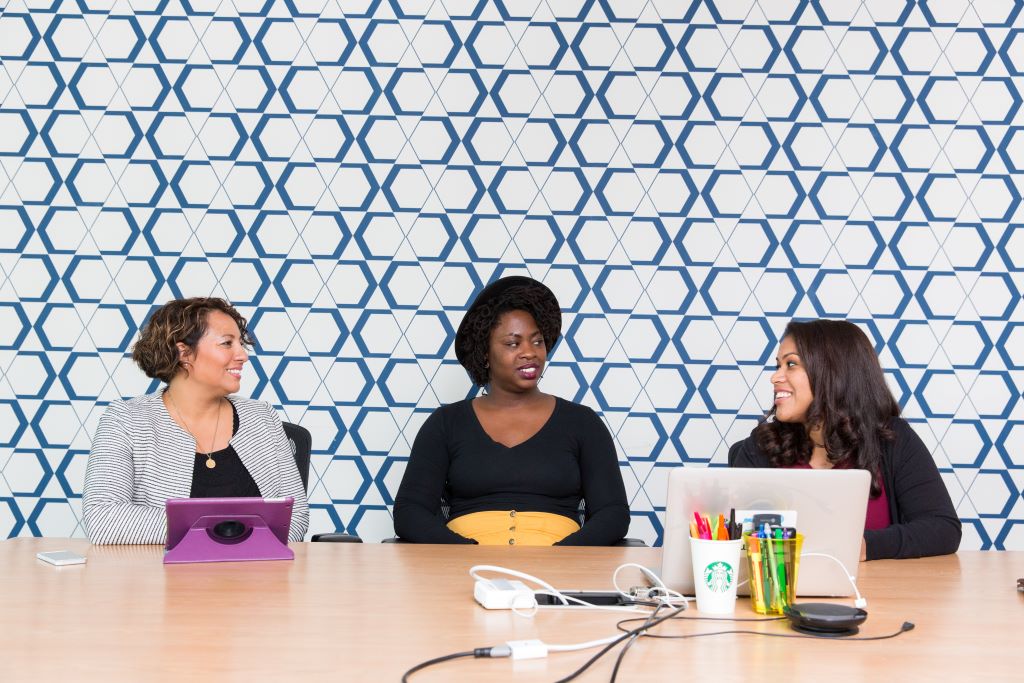Jean-Christophe Deslarzes, Chair of the Board of the Adecco Group, talks about the biggest challenges of working from home, with KPMG.
June 25, 2021
Inclusive Futures
Leadership
This interview was originally published in KPMG
Jean-Christophe Deslarzes was appointed Chairman of the Board of Directors (BoD) of the Adecco Group in April 2020, having joined the BoD five years previously. Since May 2021, he has been a member of the BoD of Constellium (NYSE). He also served as Chairman of the BoD at ABB India Ltd from 2018 to 2021. Jean-Christophe began his career as a tax and legal consultant at Arthur Andersen. He then worked at Rio Tinto and its predecessor companies Alcan and Alusuisse, in Europe and Canada, as Senior Vice President Human Resources and member of the Executive Committee of Alcan Group, as well as President and CEO of Downstream Aluminium Businesses, Rio Tinto, among other roles. More recently, he served as Chief Human Resources Officer and member of the Executive Committee at Carrefour Group (from 2010 to 2013) as well as of ABB Group (from 2013 to 2019).
During the current Coronavirus crisis, mobile working has accelerated massively, resulting in many companies having to react at an unprecedented pace. After initial short-term actions were set in place, a broader and more holistic approach, such as bringing mobile working into a sustainable and long-term concept, is needed. Any new concept needs to anticipate the expectations of both employees as well as employers. There are several operational and regulatory challenges to be considered, especially if you have employees in home office overseas. And even long after the pandemic is over, the workplace revolution is set to continue.
At the height of the crisis we switched practically overnight to having more than 80% of colleagues working remotely. Our main priority has always been the safety and wellbeing of colleagues around the globe, while at the same time supporting our customers and ensuring business continuity. Despite the turbulence, it was important to continue to focus on our overall strategic direction, as demonstrated by the launch of our new Future@Work strategy in December last year.
Probably the most challenging aspect was staying connected with our colleagues both emotionally and professionally to ensure they felt supported. Leadership starts at the top and then continues across all levels of the organisation: the message is clear – be present and visible for your teams, whatever the situation. Being in a position to manage this type of global crisis – while delivering a virtually seamless customer service, and simultaneously ensuring the wellbeing of all our colleagues during various lockdowns - has undoubtedly made us stronger as an organisation overall.
Taken as a whole, what is abundantly clear is that the world of work will not return to what we knew before the crisis struck. Taking the area of tax for example, new ways of working might become a tax challenge when employees request remote working from a different country. Even working for a limited number of days in a different country can trigger new compliance obligations for the company. It will be important to see how companies introduce new approval and control mechanisms to deal with remote working in future.
HR processes will need to be revisited, following the marked shift in how and where people work, the need for flexibility and the increased emphasis on health and wellbeing. In response to these issues, the Adecco Group HR team has introduced a ‘New World Working’ toolkit based on five guiding principles. It was the result of input from colleagues around the world who shared their reflections and experiences during the past year, both personally and professionally, through a series of workshops and online surveys.
These are just a couple of examples of functional implications of the new ways of working. However, I want to stress that we should not throw out the baby with the bathwater. Much will remain the same as in the past, since – again – the crisis has essentially accelerated the main trends that companies had already identified and worked on previously. As a result, key company developments and previous investments enabled us to weather the crisis and continue to deliver on customer expectations over the past year.
In the past few years, we expanded our range of digital HR solutions and developed new ways of virtual onboarding. This has been in response to changes in expectations towards HR companies with the traditional business model, once based on ‘high street physical branches’, rapidly evolving to an omni-channel approach. For example, today a person can find, apply for, and get a job, without ever being physically near the company she/he will be working for. It requires a much swifter recruiting process, often remote and increasingly reliant on technology platforms, matching the right candidate profiles with the job requirements without human interaction.
These capabilities are complemented by the talent advisory, career transition and re- and up-skilling services we offer our customers, giving us the unique competitive edge of a 360-degree service offering, as part of our new Future@Work strategy.
Anticipating the continuation of the hybrid remote and office-based working trend, we have already started to adjust to this new reality by creating more individual meeting rooms and additional creative and collaborative spaces in our offices. A working group is looking at further changes that will be needed to address the real estate and office design requirements of continuing to work in a more flexible manner than was the case before the global crisis.
However, although remote work for office jobs will be much more prevalent in the future, I think that employees coming together at their offices on a regular basis will continue to be of paramount importance. Indeed, companies’ cultures will be nurtured by people coming together to share their thoughts openly, for creative brainstorming sessions, to experience emotions and be inspired by colleagues and leaders. This can only happen effectively when people are able to gather physically, share their experiences and – thus – are drawn together.
Also, it is sad to see that the crisis and possibly remote work has had a negative impact on gender diversity. What could have been positive with increased flexibility being offered, has finally and unfortunately resulted in women being more negatively impacted by home working than men. We all need to collectively address this. At the Adecco Group, the BoD has already achieved the 50/50 gender equality target that we have set for all management levels for 2030. From 2019 to 2020 we increased the share of our female leadership across all management levels from 26% to 32%. And our leaders have gender diversity targets in their annual variable compensation.
Jean-Christophe Deslarzes was appointed Chairman of the Board of Directors (BoD) of the Adecco Group in April 2020, having joined the BoD five years previously. Since May 2021, he has been a member of the BoD of Constellium (NYSE). He also served as Chairman of the BoD at ABB India Ltd from 2018 to 2021. Jean-Christophe began his career as a tax and legal consultant at Arthur Andersen. He then worked at Rio Tinto and its predecessor companies Alcan and Alusuisse, in Europe and Canada, as Senior Vice President Human Resources and member of the Executive Committee of Alcan Group, as well as President and CEO of Downstream Aluminium Businesses, Rio Tinto, among other roles. More recently, he served as Chief Human Resources Officer and member of the Executive Committee at Carrefour Group (from 2010 to 2013) as well as of ABB Group (from 2013 to 2019).
During the current Coronavirus crisis, mobile working has accelerated massively, resulting in many companies having to react at an unprecedented pace. After initial short-term actions were set in place, a broader and more holistic approach, such as bringing mobile working into a sustainable and long-term concept, is needed. Any new concept needs to anticipate the expectations of both employees as well as employers. There are several operational and regulatory challenges to be considered, especially if you have employees in home office overseas. And even long after the pandemic is over, the workplace revolution is set to continue.
Around two thirds of 30,000 Adecco Group employees are working remotely at the time being. What were the biggest challenges for the Adecco Group in this context and why?
At the height of the crisis we switched practically overnight to having more than 80% of colleagues working remotely. Our main priority has always been the safety and wellbeing of colleagues around the globe, while at the same time supporting our customers and ensuring business continuity. Despite the turbulence, it was important to continue to focus on our overall strategic direction, as demonstrated by the launch of our new Future@Work strategy in December last year.
Probably the most challenging aspect was staying connected with our colleagues both emotionally and professionally to ensure they felt supported. Leadership starts at the top and then continues across all levels of the organisation: the message is clear – be present and visible for your teams, whatever the situation. Being in a position to manage this type of global crisis – while delivering a virtually seamless customer service, and simultaneously ensuring the wellbeing of all our colleagues during various lockdowns - has undoubtedly made us stronger as an organisation overall.
New ways of working have implications for a wide range of areas, such as HR, Tax, and Compliance to name a few. How do companies need to incorporate this into their corporate strategy and who should be brought on board?
Taken as a whole, what is abundantly clear is that the world of work will not return to what we knew before the crisis struck. Taking the area of tax for example, new ways of working might become a tax challenge when employees request remote working from a different country. Even working for a limited number of days in a different country can trigger new compliance obligations for the company. It will be important to see how companies introduce new approval and control mechanisms to deal with remote working in future.
HR processes will need to be revisited, following the marked shift in how and where people work, the need for flexibility and the increased emphasis on health and wellbeing. In response to these issues, the Adecco Group HR team has introduced a ‘New World Working’ toolkit based on five guiding principles. It was the result of input from colleagues around the world who shared their reflections and experiences during the past year, both personally and professionally, through a series of workshops and online surveys.
These are just a couple of examples of functional implications of the new ways of working. However, I want to stress that we should not throw out the baby with the bathwater. Much will remain the same as in the past, since – again – the crisis has essentially accelerated the main trends that companies had already identified and worked on previously. As a result, key company developments and previous investments enabled us to weather the crisis and continue to deliver on customer expectations over the past year.
Where do you see opportunities for the Adecco Group in this new (virtual) reality?
In the past few years, we expanded our range of digital HR solutions and developed new ways of virtual onboarding. This has been in response to changes in expectations towards HR companies with the traditional business model, once based on ‘high street physical branches’, rapidly evolving to an omni-channel approach. For example, today a person can find, apply for, and get a job, without ever being physically near the company she/he will be working for. It requires a much swifter recruiting process, often remote and increasingly reliant on technology platforms, matching the right candidate profiles with the job requirements without human interaction.
These capabilities are complemented by the talent advisory, career transition and re- and up-skilling services we offer our customers, giving us the unique competitive edge of a 360-degree service offering, as part of our new Future@Work strategy.
“Working remotely” is here to stay after the pandemic. This is likely to have an impact on the need for physical or corporate working space. How do you see the Adecco Group and other companies addressing this topic?
Anticipating the continuation of the hybrid remote and office-based working trend, we have already started to adjust to this new reality by creating more individual meeting rooms and additional creative and collaborative spaces in our offices. A working group is looking at further changes that will be needed to address the real estate and office design requirements of continuing to work in a more flexible manner than was the case before the global crisis.
However, although remote work for office jobs will be much more prevalent in the future, I think that employees coming together at their offices on a regular basis will continue to be of paramount importance. Indeed, companies’ cultures will be nurtured by people coming together to share their thoughts openly, for creative brainstorming sessions, to experience emotions and be inspired by colleagues and leaders. This can only happen effectively when people are able to gather physically, share their experiences and – thus – are drawn together.
Also, it is sad to see that the crisis and possibly remote work has had a negative impact on gender diversity. What could have been positive with increased flexibility being offered, has finally and unfortunately resulted in women being more negatively impacted by home working than men. We all need to collectively address this. At the Adecco Group, the BoD has already achieved the 50/50 gender equality target that we have set for all management levels for 2030. From 2019 to 2020 we increased the share of our female leadership across all management levels from 26% to 32%. And our leaders have gender diversity targets in their annual variable compensation.



